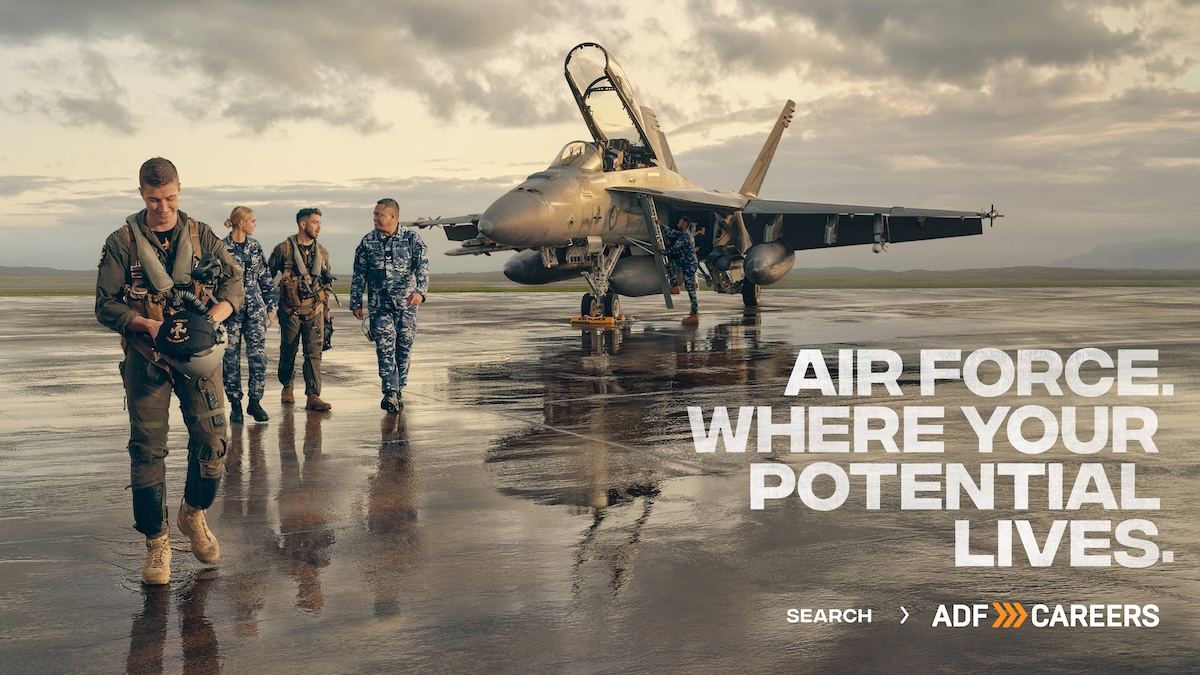
VML and Investigations in the Air Force: A Comprehensive Guide
Understanding the intersection of Victim/Witness/Whistleblower Military Liaison (VML) programs and investigations within the Air Force is crucial for ensuring justice, fairness, and the protection of service members. This article provides a comprehensive overview of VML programs and their role in supporting individuals involved in Air Force investigations, offering insights into the processes, protections, and resources available. We delve into the intricacies of how these two critical functions work together to maintain integrity and uphold the standards of the United States Air Force. This in-depth exploration is designed to provide clarity and actionable information for service members, legal professionals, and anyone seeking a deeper understanding of this vital aspect of military justice.
Understanding the Victim/Witness/Whistleblower Military Liaison (VML) Program
The Victim/Witness/Whistleblower Military Liaison (VML) program is a cornerstone of support within the Air Force, designed to protect and assist individuals who are victims, witnesses, or whistleblowers in military investigations and legal proceedings. The program’s genesis lies in the need to ensure fair treatment and provide resources to those who may be vulnerable during the often-complex and stressful process of military justice. Its evolution has been shaped by legal mandates and a growing understanding of the importance of protecting the rights and well-being of all involved parties.
The core mission of the VML program is multifaceted, encompassing several key objectives:
- Protection: Safeguarding victims, witnesses, and whistleblowers from intimidation, harassment, or retaliation.
- Information: Providing clear and timely information about the investigation process, legal rights, and available resources.
- Support: Offering emotional, practical, and logistical support to help individuals navigate the challenges of participating in an investigation or legal proceeding.
- Advocacy: Representing the interests and concerns of victims, witnesses, and whistleblowers to ensure their voices are heard and their needs are met.
The VML program operates under a framework of established policies and procedures, ensuring consistency and accountability. Key components of the program include:
- Designated VML Officers: Trained personnel who serve as the primary point of contact for victims, witnesses, and whistleblowers.
- Resource Coordination: Connecting individuals with relevant resources, such as legal counsel, counseling services, and medical care.
- Risk Assessment: Evaluating the potential for retaliation or harm and implementing measures to mitigate these risks.
- Confidentiality: Maintaining the confidentiality of information shared by victims, witnesses, and whistleblowers, within legal and ethical boundaries.
The Role of VML in Air Force Investigations
VMLs play a critical role in ensuring that Air Force investigations are conducted fairly, impartially, and with respect for the rights and well-being of all involved. Their involvement spans the entire investigation process, from the initial reporting of an incident to the final resolution.
During the initial stages of an investigation, VMLs work to:
- Inform victims and witnesses of their rights: Ensuring they understand their legal protections and available resources.
- Assess the need for protective measures: Evaluating the risk of retaliation or harm and implementing appropriate safeguards.
- Facilitate communication between investigators and victims/witnesses: Ensuring that victims and witnesses are able to provide information without fear or intimidation.
Throughout the investigation, VMLs continue to provide support and advocacy, including:
- Attending interviews and legal proceedings: Providing emotional support and ensuring that victims and witnesses are treated with respect.
- Monitoring for signs of retaliation or harassment: Taking prompt action to address any instances of misconduct.
- Providing updates on the progress of the investigation: Keeping victims and witnesses informed of key developments.
VMLs also play a crucial role in ensuring that whistleblowers are protected from reprisal. They:
- Advise whistleblowers of their rights and protections under the law: Ensuring they understand their legal options.
- Investigate allegations of retaliation: Taking swift action to address any instances of reprisal.
- Advocate for whistleblowers’ interests: Ensuring their concerns are heard and addressed fairly.
Types of Air Force Investigations Where VML Involvement is Critical
VML support is particularly vital in specific types of Air Force investigations, where the potential for vulnerability and the need for protection are heightened. These include:
- Sexual Assault Investigations: VMLs provide comprehensive support to victims of sexual assault, ensuring they receive the medical, emotional, and legal assistance they need.
- Domestic Violence Investigations: VMLs work to protect victims of domestic violence and ensure their safety and well-being.
- Fraud, Waste, and Abuse Investigations: VMLs protect whistleblowers who report instances of fraud, waste, and abuse within the Air Force.
- Hazing Investigations: VMLs provide support to victims of hazing and ensure that those responsible are held accountable.
- Discrimination and Harassment Investigations: VMLs advocate for individuals who have experienced discrimination or harassment based on race, gender, religion, or other protected characteristics.
Navigating the Investigation Process with VML Support
Navigating an Air Force investigation can be a daunting and stressful experience. VMLs provide invaluable assistance in helping individuals understand the process, protect their rights, and access the resources they need.
Key steps in the investigation process where VML support is crucial include:
- Reporting an Incident: VMLs can assist individuals in reporting incidents of misconduct, providing guidance on the reporting process and ensuring their safety and confidentiality.
- Participating in Interviews: VMLs can attend interviews with victims and witnesses, providing emotional support and ensuring they are treated fairly.
- Reviewing Legal Documents: VMLs can help individuals understand legal documents related to the investigation, such as affidavits and court orders.
- Attending Legal Proceedings: VMLs can attend legal proceedings, such as court-martials, providing emotional support and ensuring that victims and witnesses are treated with respect.
- Seeking Legal Counsel: VMLs can connect individuals with legal counsel to advise them on their rights and options.
The Importance of Confidentiality and Protection from Retaliation
Confidentiality and protection from retaliation are paramount to the success of the VML program and the integrity of Air Force investigations. Victims, witnesses, and whistleblowers must feel safe and secure in reporting misconduct without fear of reprisal.
The Air Force has strict policies in place to protect individuals from retaliation. These policies prohibit any adverse action against someone who reports misconduct, participates in an investigation, or seeks assistance from a VML. Retaliation can take many forms, including:
- Harassment
- Intimidation
- Discrimination
- Unfair treatment
- Adverse personnel actions (e.g., demotion, termination)
Individuals who experience retaliation should report it immediately to their VML or to the Inspector General. The Air Force takes allegations of retaliation very seriously and will investigate them thoroughly.
Confidentiality is also essential to building trust and encouraging individuals to come forward with information. VMLs are trained to maintain the confidentiality of information shared by victims, witnesses, and whistleblowers, within legal and ethical boundaries. This means that VMLs will not disclose information to unauthorized individuals without the consent of the person who provided it, unless required by law.
Resources Available Through the VML Program
The VML program offers a wide range of resources to support victims, witnesses, and whistleblowers, including:
- Legal Assistance: VMLs can connect individuals with legal counsel to advise them on their rights and options.
- Counseling Services: VMLs can provide referrals to counseling services to help individuals cope with the emotional impact of participating in an investigation.
- Medical Care: VMLs can assist individuals in accessing medical care for injuries or illnesses related to the incident under investigation.
- Financial Assistance: VMLs can help individuals access financial assistance programs to cover expenses related to the investigation, such as travel costs or lost wages.
- Relocation Assistance: VMLs can assist individuals in relocating to a safer environment if they are at risk of harm.
- Victim Compensation Programs: VMLs can help victims of crime apply for compensation through state and federal victim compensation programs.
The Future of VML and Investigations in the Air Force
The VML program and Air Force investigations are constantly evolving to meet the changing needs of service members and the demands of a complex world. Future trends and developments in this area may include:
- Increased focus on prevention: Efforts to prevent misconduct and create a culture of respect and accountability.
- Enhanced training for VMLs: Providing VMLs with the skills and knowledge they need to effectively support victims, witnesses, and whistleblowers.
- Improved technology: Using technology to enhance the efficiency and effectiveness of investigations and VML services.
- Greater collaboration with civilian agencies: Working with civilian law enforcement and social service agencies to provide comprehensive support to victims of crime.
- Increased awareness of victim and whistleblower rights: Educating service members about their rights and resources.
By continuing to invest in the VML program and improve its investigative processes, the Air Force can ensure that it is providing a fair, just, and supportive environment for all service members.
Ensuring Fairness and Justice
The integration of the VML program with Air Force investigations is paramount for upholding fairness, protecting service members, and maintaining the integrity of the Air Force. By providing comprehensive support, ensuring confidentiality, and safeguarding against retaliation, the VML program empowers individuals to come forward with information, participate in investigations, and seek justice. This collaborative approach strengthens the Air Force’s ability to address misconduct, promote accountability, and foster a culture of respect and integrity. If you are a service member, understanding your rights and the resources available through the VML program is crucial. Contact your local VML office to learn more and ensure your voice is heard.

